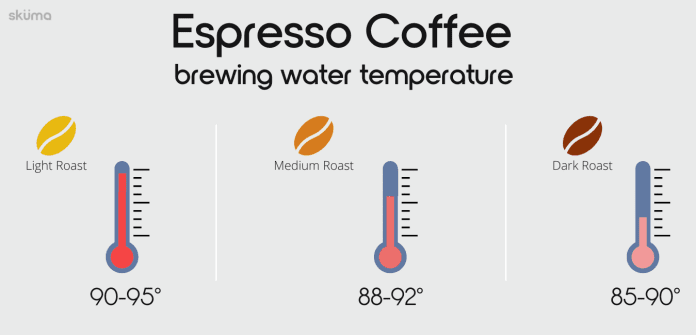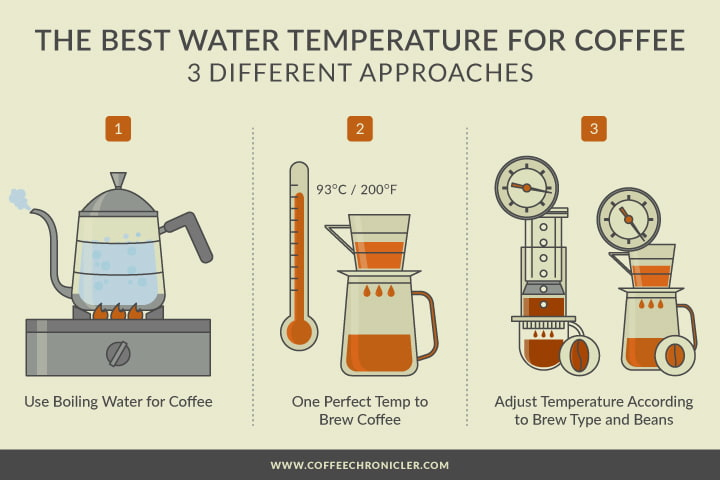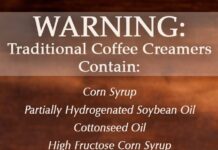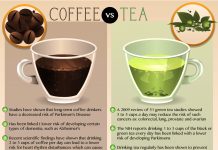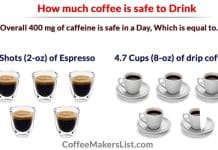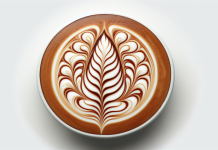In coffee brewing, achieving the perfect water temperature is an art form that can make or break the taste of your morning cup of joe.
Whether you prefer a bold dark roast or a delicate light roast, finding that ideal temperature is a key factor in extracting the best flavors from your coffee beans. But what exactly is this magical temperature? Join
us as we explore the science behind the ideal water temperature for brewing coffee and unlock the secrets to a truly exceptional coffee experience.
Ideal Water Temperature for Brewing Coffee
What is Water Temperature in Coffee Brewing?
In the world of coffee brewing, water temperature refers to the heat at which water is used to extract the flavor and aroma compounds from the coffee grounds. It plays a crucial role in determining the taste, strength, and overall quality of the brewed coffee. The ideal water temperature for brewing coffee may vary depending on the brewing method and personal preferences, but it generally falls within a specific range.
Why is Water Temperature Important?
Water temperature affects the rate of extraction and solubility of the coffee beans’ flavor compounds. Brewing coffee with water that is too hot can result in over-extraction, making the coffee taste bitter and unpleasant. On the other hand, using water that is too cold can lead to under-extraction, resulting in a weak and underwhelming cup of coffee. Therefore, it is essential to find the ideal water temperature to achieve the perfect balance of flavors and aromas in your brew.
The Science Behind Water Temperature
Understanding the science behind water temperature in coffee brewing begins with the chemical compounds present in the coffee beans. During the brewing process, water extracts various soluble compounds such as acids, sugars, oils, and aromatic compounds from the coffee grounds. Different compounds are extracted at different temperatures, which is why the water temperature plays a vital role in the final taste of the brew.
Hot water, generally between 195°F and 205°F (90°C to 96°C), accelerates the extraction process, allowing the water to dissolve and extract the desirable compounds efficiently. The high temperature helps break down the complex compounds in the coffee grounds, resulting in a more robust and flavorful cup of coffee.
Conversely, colder water, below 195°F (90°C), leads to a slower extraction. The lower temperature restricts the solubility of some compounds, resulting in a milder and potentially less flavorful brew. However, brewing coffee at lower temperatures is also favored by some coffee enthusiasts, as it can highlight certain delicate and nuanced flavors that are often overshadowed by higher temperatures.
Factors Affecting Water Temperature
Several factors can affect the water temperature during the brewing process. One of the most significant factors is the brewing method itself. Different methods require specific temperature ranges to achieve the desired results. External factors such as altitude, water quality, and equipment efficiency can also impact the water temperature.
Altitude, for instance, affects the boiling point of water. At higher altitudes, where the atmospheric pressure is lower, water boils at a lower temperature. This means that if you live in a high-altitude area, you may need to adjust your brewing temperature accordingly.
Water quality is another important factor to consider. Hard water, which contains high levels of minerals, can affect the taste and extraction of coffee. To mitigate this, some coffee enthusiasts choose to use filtered or bottled water, which can help maintain a consistent water temperature and improve the overall brewing experience.
Lastly, the efficiency of your brewing equipment, such as coffee makers and kettles, can impact the accuracy and consistency of the water temperature. Investing in high-quality equipment with precise temperature control can help ensure that your coffee is brewed at the ideal temperature.
Recommended Water Temperature for Different Brewing Methods
While the ideal water temperature for brewing coffee can vary based on personal preferences, here are some general guidelines for popular brewing methods:
1. Drip Coffee
Drip coffee machines are one of the most common methods of brewing coffee. For this method, the ideal water temperature is between 195°F and 205°F (90°C to 96°C). These machines are designed to heat the water to the optimal temperature range, ensuring thorough extraction and a flavorful brew.
2. French Press
French press brewing is renowned for its full-bodied and rich coffee. To achieve the best results, the recommended water temperature for the French press method is slightly lower than drip coffee, at around 195°F (90°C). This lower temperature allows for a longer brewing time, allowing the flavors to develop fully.
3. Espresso
Espresso brewing requires a different approach due to its unique extraction process. The ideal water temperature for brewing espresso is between 190°F and 200°F (88°C to 93°C). The slightly lower temperature helps prevent over-extraction and ensures a rich, balanced shot of espresso.
4. Pour Over
Pour over brewing is a manual method that involves pouring heated water over coffee grounds in a slow and controlled manner. The recommended water temperature for pour over brewing is between 195°F and 205°F (90°C to 96°C). This temperature range allows for optimal extraction and produces a clean, bright, and well-balanced cup of coffee.
5. Cold Brew
Cold brew is a brewing method that relies on a long steeping process at lower temperatures. The ideal water temperature for cold brew is around room temperature, typically between 68°F and 72°F (20°C to 22°C). This lower temperature allows for a gentle and gradual extraction, resulting in a smooth and less acidic brew.
How to Measure Water Temperature
Accurately measuring the water temperature is crucial to achieving the desired results in coffee brewing. There are several ways to measure water temperature:
- Use a kettle with a built-in thermometer: Many electric kettles have integrated thermometers that display the water temperature during the heating process. This provides a convenient way to monitor the temperature without the need for additional tools.
- Use a digital thermometer: If your kettle or brewing equipment does not have a built-in thermometer, using a digital thermometer can be a simple and effective solution. Insert the thermometer into the water to get an accurate reading.
- Use a temperature-controlled kettle: Some specialty kettles are designed specifically for coffee brewing and feature precise temperature control. These kettles allow you to set and maintain the desired water temperature throughout the brewing process.
Tips for Achieving the Ideal Water Temperature
Here are some tips to help you achieve the ideal water temperature for brewing coffee:
- Preheat your equipment: Before brewing, preheat your brewing equipment, such as the French Press, pour-over dripper, or espresso machine. This helps maintain a stable water temperature throughout the brewing process.
- Boil fresh water: Always use fresh, cold water when brewing coffee. Water that has been boiled and left sitting for too long can lose heat and fall below the desired temperature range.
- Experiment with different temperatures: While there are recommended temperature ranges for each brewing method, don’t be afraid to experiment and adjust the temperature to your taste preferences. Gradually increase or decrease the temperature to find the sweet spot that brings out the best flavors in your coffee.
- Consider investing in a temperature-controlled kettle: If you are serious about brewing coffee at the ideal temperature, investing in a temperature-controlled kettle can be a game-changer. These kettles provide precise control over the water temperature, ensuring consistent and accurate brewing results.
- Keep a brewing journal: To fine-tune your brewing process, it can be helpful to keep a brewing journal to record the water temperature and the resulting taste of your coffee. This allows you to track your experiments and make adjustments based on your personal preferences.
Conclusion
Water temperature is a critical factor in achieving the perfect cup of coffee. Whether you prefer a bright and acidic brew or a rich and full-bodied cup, the ideal water temperature plays a significant role in extracting the desired flavors and aromas from the coffee grounds. By understanding the science behind water temperature, considering the factors that can affect it, and following the recommended temperature ranges for different brewing methods, you can elevate your coffee brewing skills and enjoy a consistently delicious cup of coffee. So, take the time to explore and experiment with water temperature, and discover the brewing method that best suits your taste buds. Cheers to brewing perfection!


